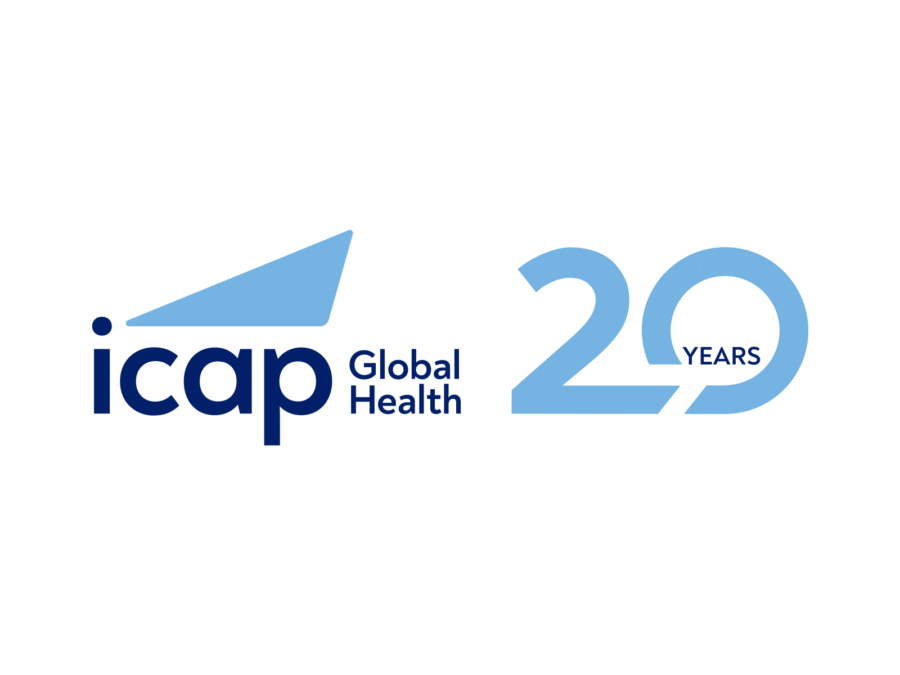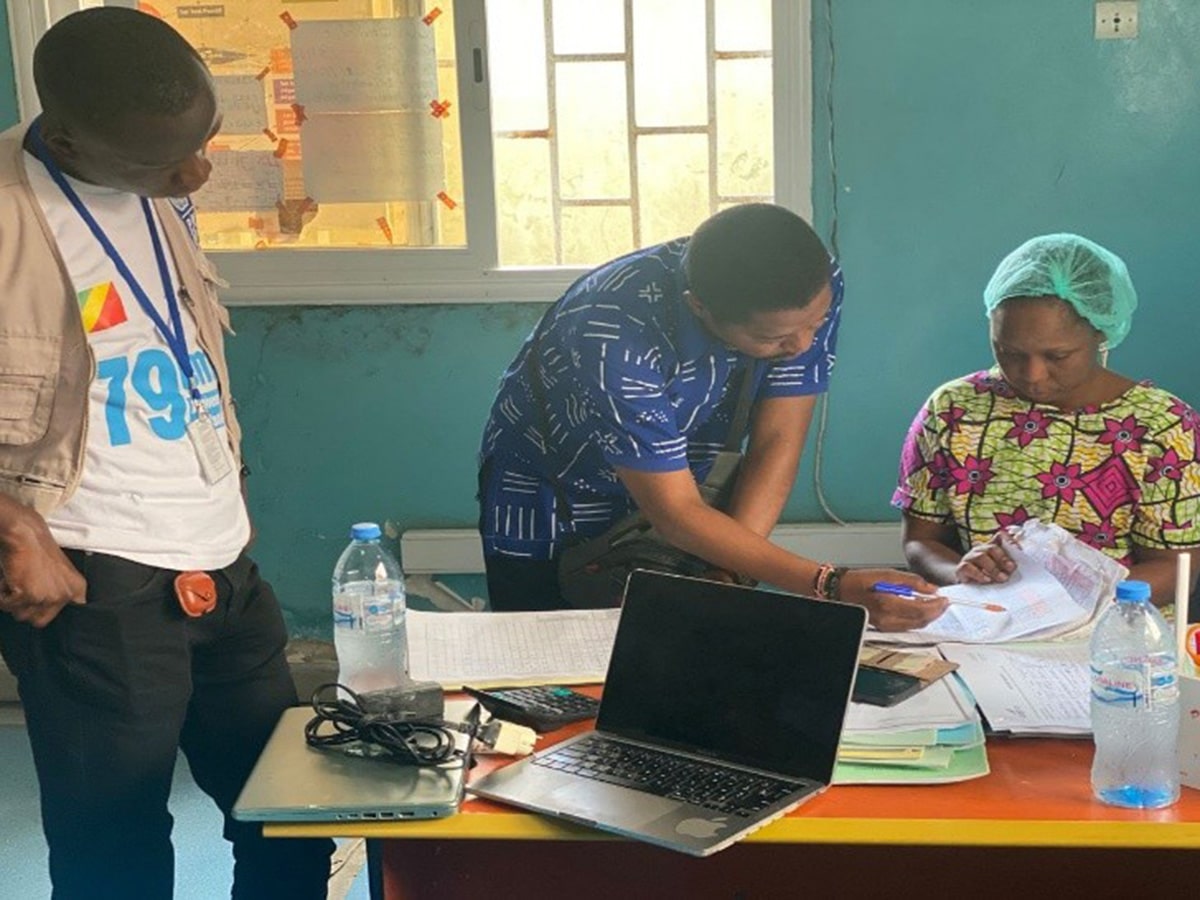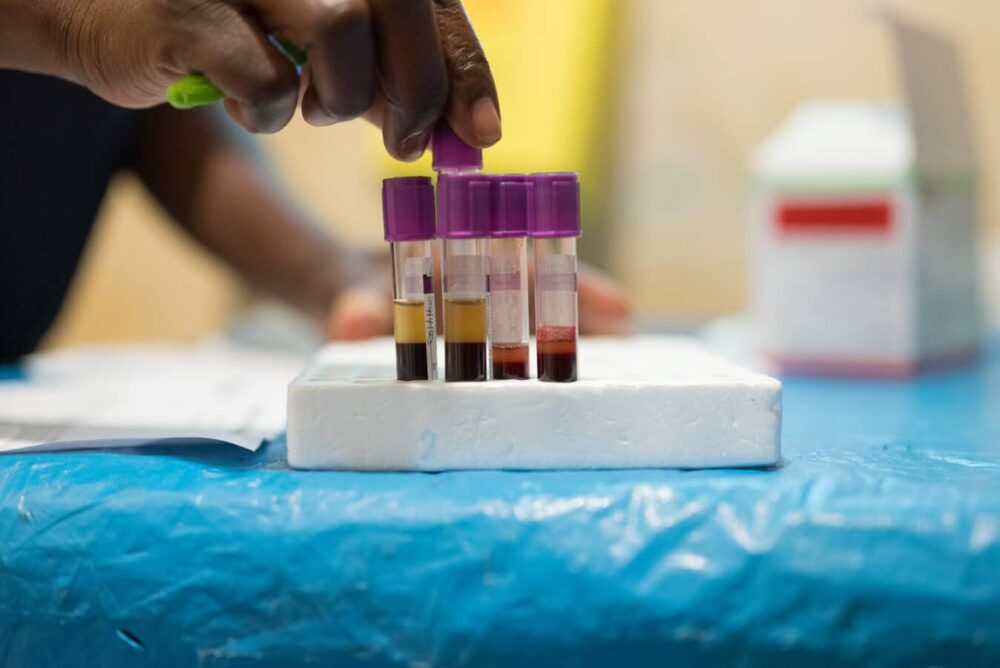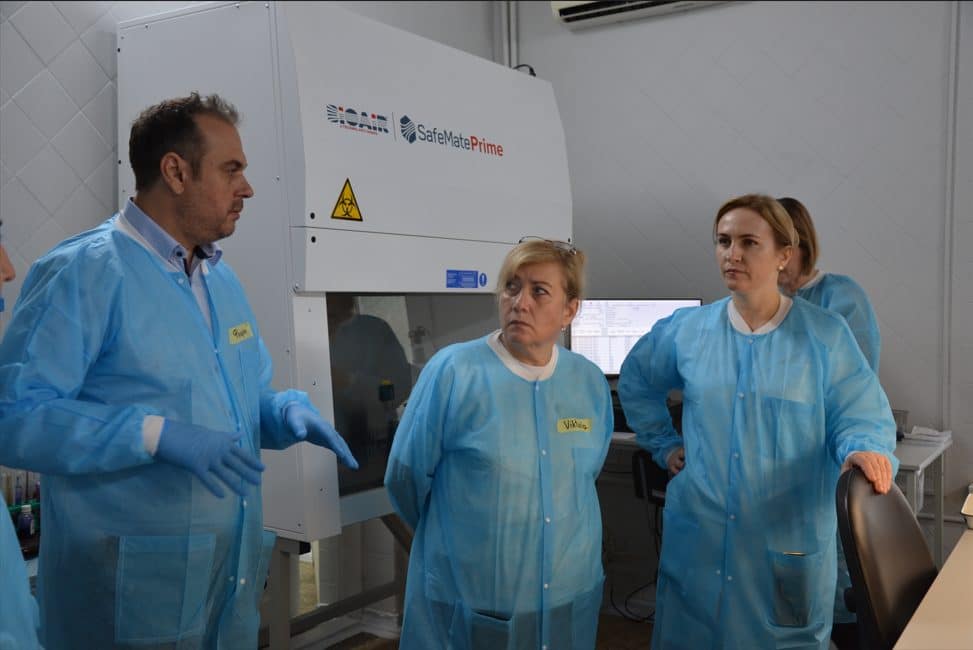Accurate early diagnosis and prompt treatment of malaria is among the core strategies used to prevent and control malaria. When patients visit health centers or hospitals for malaria care, a lab technician collects blood from the patient and examines it for the presence of malaria parasites. To ensure the reliability of the test, the slides are collected from health facilities and labs and verified by external laboratory personnel to ensure patients are receiving the right diagnosis and treatment.
In Ethiopia, where there are just a handful of expert malaria microscopy readers, the regional reference laboratories are not adequately staffed to handle the high number of slides regularly collected from facilities for quality control and this adversely affects malaria diagnosis and patient care.
“It usually takes up to eight months to provide feedback on slide quality control and respond to the problem,” says Mr. Merihun Dawit, senior laboratory officer at the Public Health Laboratory in Southern Nations and Nationalities Peoples’ Region, Ethiopia, which has an especially high burden of malaria. As a result, diagnostic errors, such as misidentifying the type of malaria parasite, can go undetected for months.
With funding from USAID through the President’s Malaria Initiative, ICAP’s is partnering with the Ethiopian Public Health Institute (EPHI) and regional health bureaus to implement a quality assurance program on malaria blood slides collected from health facilities and transferred to reference laboratories for rechecking by an expert microscopist.
To shorten the slide evaluation and feedback process, ICAP designed an innovative solution to provide onsite feedback on malaria slides. Previously, the slides were stored, selected, and sent to regional reference labs each quarter for rechecking. In the new approach, expert microscopists from ICAP and regional reference laboratories review the slides at the health facility instead of transferring the slides to an external lab for review.
“Now the expert readers come to us, check the quality of our malaria microscopic diagnosis and correct us on the spot,” said Mr. Eshetu Ismael, head of Wacha Health Center Laboratory. “Had the slides been sent to the reference laboratory for rechecking by an expert malaria microscopist, the recurrent quality error would have continued to exist for months.”
Over the last three years, ICAP has scaled up this innovative approach at over 770 health facilities across the country.
“This is an excellent approach to cover a large number of health facilities with limited resources,” said Mr. Mekonnen Tadesse, Malaria Laboratory Diagnosis and Monitoring project director at ICAP in Ethiopia. “On-site rechecking and feedback in health facility laboratories gives the chance for the assessor to scrutinize the actual quality defects of the laboratory and provide an immediate solution.”
With PMI’s support, ICAP is supporting the Federal Ministry of Health’s goal to achieve universal access to quality malaria diagnosis and treatment within 24 hours and bring Ethiopia closer to the goal of zero malaria deaths by 2020.








